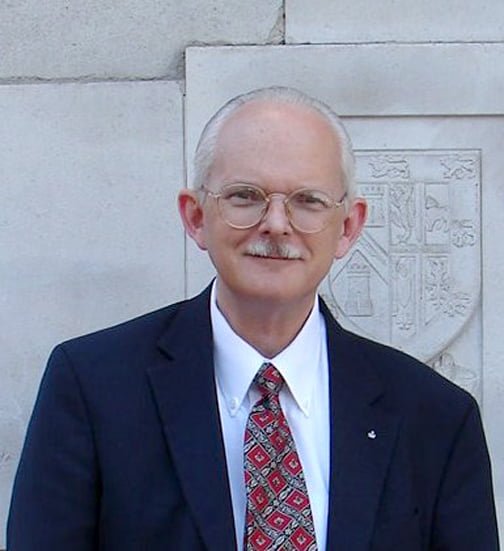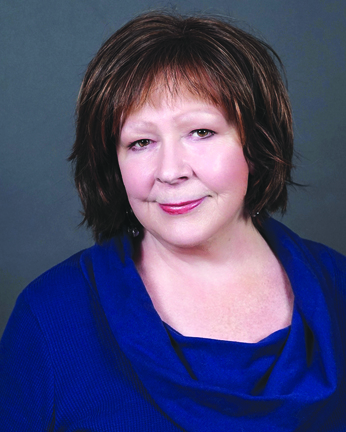Question: We grew up in a home full of domestic violence because of a father who was an alcoholic. He physically and mentally abused our mom and us, too. We couldn’t wait to graduate from high school and leave home. After we did, we only stayed in touch with our mom. We didn’t speak to Dad at all but toward the end of our dad’s life, two of our sisters reconciled with him. My brother and I still didn’t want anything to do with him although we’re both clear that we forgave him. We just didn’t want him in our lives.
When he died, we didn’t go to his funeral. Our mom, who stayed with Dad all those many years, didn’t mind that we didn’t go to his funeral. Our two sisters are angry and won’t speak to us. Did we do the right thing? Should we have gone to dad’s funeral? ~ Uncertain Siblings
Dear Uncertain Siblings,
It saddens me to learn of your childhood experiences. Domestic violence is difficult to discuss and, even in this society of openness, some things remain locked behind closed doors. The fact that you can talk about it now is admirable and determining how you choose to deal with the past is strictly a matter of your choice. You were also victims – not just your mother – and you deserve to respond to any inquiry about the abuse as you see fit.
There are many reasons why people stay in abusive relationships. Sometimes there is a financial dependence that makes leaving untenable. With several children my guess is that Mom was either too afraid of going it on her own or simply unable to see how life could work. Some survivors stay because it’s the only way they know. Back in the day, no one got involved in these private matters or it would disgrace the family. Some stay because they become used to the pattern of violence and are willing to sacrifice their days of suffering for other times of relative peace. I’m not sure what the case was with your mom, but it says a lot about your character that you found the freedom to remain in contact with her.
Another aspect of your situation is that forgiveness is different from forgetting. I’m sure you’ve heard the saying “Forgive and forget,” which isn’t a safe way to manage in an abusive family system. Forgiveness is a Biblical standard that encourages us to forgive others, allowing the Lord to carry the burden of the offense and the retribution on our behalf. The fact that you were willing to forgive is admirable and aligns with your faith.
Forgetting is altogether different. When we forgive an offense we give control to God to seek justice. Our role is to release the pain, humiliation and emotional content to move forward with our lives without the baggage of the past. Forgetting would imply that the act never happened. That sounds like rewriting history to eliminate the unsavory events. How would we ever be able to move forward by ceasing to acknowledge from whence we came – denying the events simply defies logic. Forgive, yes. Work through the trauma, yes. Pray for healing, yes. But pretending it never happened is unrealistic. Consequently, forgetting may not be appropriate.
That being said, the matter of reconciliation is very personal. It sounds like your other siblings needed to reunite with your dad at some point. Whether they reached out to him or him to them, they no longer perceived him as a threat and felt the need to allow him into their worlds. Again, this is a personal decision that had no bearing on your decision to stay away. Let’s face it – not all stories end happily and people shouldn’t hold others to a standard of behavior that takes them beyond their comfort zones.
Just as reconciliation is a very personal decision so is the idea of honoring someone in death who didn’t earn your love and esteem in life. At funerals, we celebrate the person and legacy left behind. If we don’t have an authentic and compelling reason to honor someone, and when the mere thought of participating in something like that feels wrong, then showing up with resentment would be folly.
Some people will utter words from Scripture that compel us to: “Honor your father and your mother.” (Matthew 19:19, Mark 10:19, Luke 18:20, Ephesians 6:2)
But Scripture also advises in both Ephesians and Colossians: “Fathers, do not provoke your children to anger [do not exasperate them to the point of resentment with demands that are trivial or unreasonable or humiliating or abusive; nor by showing favoritism or indifference to any of them], but bring them up [tenderly, with loving kindness] in the discipline and instruction of the Lord.” Ephesians 6:4 (AMP) “Fathers, do not provoke your children, lest they become discouraged.” Colossians 3:21 (NKJV)
It sounds like your sisters are making their own choices, which is their right. However, you shouldn’t feel shame for following your conscience and staying away.
I hope one day you will all be able to reconcile with one another, hold space for your differences and come together with the common interests of your mom. In the meantime, you are only accountable to yourselves and God for your actions.
Lean into the love, strength and courage of the Lord! If your consciences are clear, know that you have forgiven and deserve respect for that, as well as your other decisions.
Be well & be blessed!

Lucinda Guarino
lucindaguarino1@gmail.com
Dear Uncertain Siblings,
First of all, I fully appreciate and understand what it is like to grow up in an alcoholic household. I know of many stories similar to yours of children who essentially divorced themselves from their alcoholic or drug addicted parent. Their action was never the result of intended cruelty. It was a matter of survival, both psychological and sometimes physical. It would be lovely if all of us were born into a “Leave it to Beaver” or an “Ozzie and Harriet” family. But we are not. We deal with the cards we are dealt in life the best way we can the best we may know how at the time considering that all of us are playing this game of life in ignorance anyway.
However in spite of not having a “Leave it to Beaver” family, children of alcoholics are taught to hide their family shame and trauma from the outside world. Inside the family may be in chaos. But to the outside world, you learn (almost intuitively) to put on a front of normality. I think this is the root of the problems with your sisters. By not going to the funeral, they felt you were possibly violating the unspoken and secret family pact of portraying normality to the world. Your absence publicly revealing at the funeral the truth that not all was well with this family and this, they may have possibly felt, was an embarrassment to the family.
Just remember that all anger comes out of fear. When someone is angry, ask yourself what are they afraid of? The reason will eventually reveal itself. Your sisters’ anger is not your problem; it is their problem. Like you, even if they said they forgave their dad, they are still caught up in the same childhood trauma you and your brother went through. They too are dealing with it the best way they can, the best way they know how. It is different from the path you and your brother chose. Therein is the conflict and it is a conflict rooted in our shared ignorance as human beings.
As to not going to the funeral, I think you and your brother did the right thing for your own mental survival. Others may judge and condemn you. But they never walked in your shoes or know what it must have been like, even now, to still try and mentally survive what you went through. As for your sisters, you can reach out to try and resolve this by having a heart-to-heart conversation about your shared trauma. I would encourage you to contact your local Adult Children of Alcoholics for help and guidance. They might be able to refer you to a trained family mediator who can help guide you and your siblings through this journey toward resolution and re-establishing good will.
But that is one option – it is one practical option. The other option is a spiritual one. Life reflects back to us what we think and feel into it. To change any negative situation we need only change our thinking or our belief about it. At the moment, you only see conflict with your sisters as the reality. Harsh as this may seem, you are innocently reinforcing that state by your belief. This is not to say there aren’t (what appears to be) justifiable reasons for this and which are not of your own hand. But that is of no concern here. All you need to do is to change your own thinking/belief in your own mind/imagination to change this situation. You need not go outside of yourself to do this. You do not need to convince or influence anyone outside of yourself. You only need to convince yourself. It is all done on the inside, in your own mind. To change a negative situation, we affirm its opposite as being the reality. That is, we need only affirm the positive thing we would like to see in order to bring that reality about. We can accomplish this, in one way, with affirmative spiritual prayer. This is not the begging prayer we are use to, or taught, as children. It is a commanding and declarative prayer for the good for all we wish to manifest.
Here is an affirmative prayer you can use to help heal this situation with your sisters. Commit it to memory and repeat it as often as necessary, or whenever you feel challenged by your prior negative belief. Eventually, you will feel something click and it will work miracles in healing this situation: “My sisters, brother and I are beloved children of God. All that is true of our Divine Father is true of each of us. Therefore, there can only be among us love, harmony, compassion, understanding, forgiveness goodness and goodwill. This is the truth of our life and our relationship. This is our new reality and it is wonderful and joyous. I am truly grateful and thankful for this healing, and so it is. Amen.”

Anthony Kelson, RScP
penworth3@yahoo.com
Question: A friend of mine and I are having problems with a mutual friend. We’re all Christians but the mutual friend attends a different church than we do. The mutual friend keeps telling us that our chosen faith is wrong and that we should quit and go to hers. We’ve been getting together once a month for the last several years. It’s only been the last six months that our mutual friend has become eccentric about her beliefs. My friend and I just want to relax, enjoy lunch and have conversations that are upbeat. We’ve thought about leaving the mutual friend out of our lunches and perhaps dropping her altogether, although when we discuss doing that, it doesn’t seem right. We have asked her to not discuss religion but it hasn’t done any good.
What on earth can we do? ~ Discouraged
Dear Discouraged,
Friction with friendships, especially when they used to be light and easy, often causes us to want to pull away. I am glad to hear that you sense that it would be wrong to cut her out of your life over her annoying behavior. I think having another conversation is in order.
Enter the conversation with a bit of curiosity: Why has she suddenly been interested in converting you to her faith? I would imagine it is a mix of good intentions with poor execution. Perhaps she lacks friends at her church and would like to worship with those to whom she is close. Perhaps she has genuine (though misplaced) worry about your spiritual vitality.
It is possible that she has heard teaching that pressures her to prove her conviction by taking these hard-sell approaches or teaching that condemns everyone but the “chosen.” The sudden change in her demeanor to you might come from fear or being made to feel as if she is not good enough in her faith.
Once you determine where she is coming from with a sense of wonder, then you can more adequately lay a boundary. “Don’t talk about religion” is a tough boundary for people who are told that not talking about it means they are ashamed of their faith. But a boundary of “You don’t have to feel guilty around me” or “Thank you for your worries but I’m okay with my faith as it is” can be easier once you understand her perspective.

Rev. Kyle Sears
kylesears@lacanadachurch.org
Dear Discouraged,
When it comes to religion, our spiritual path is our own personal journey. God is. God is good. God is omnipresent in and through each of us. There are many names for God. Yet there is only one God.
It is always frustrating when one person demands we change. People who try to control others believe that they are always right. The only correct viewpoint is theirs. Over time, we learn we can’t change other people; we can only change ourselves. Trusting in God gives us the foundation and inspiration to say, “Yes, God, I am changing and becoming who I am truly meant to be. I am willing to share the love my faith gives me without trying to control others. I know control is based on fear. And I choose love not fear.”
Depending on how you grew up and where you live, the role of God in our lives can be very different. Some use affirmative prayer celebrating their oneness with God. Some use supplication prayer and ask God, who is outside of them, for what they want. There are many paths in the way we each connect with God. Remind your friend that we all have a right to worship the way that feels right to each of us individually. Being willing to take a step back, breathe and see both sides is a skill based on kindness. Understanding, not demanding, is God’s path. We are all human. We all see things from different sides. That is part of the joy in getting to know other people. It makes life even more interesting. Reinforce you don’t want to talk about religion because it puts unnecessary tension into a friendship based on happiness. Remind her how much you all enjoy spending time with one another. Make sure your friend knows that you hear her, that you respect her opinion and that she needs to respect yours. Gently remind her that you love her and want to remain friends. But how each of us expresses our faith isn’t her choice to control.
Let go and let God. And pray. We know prayer works. If your friend refuses to stop, invite her to pray with you. As you pray together, bless her. Acknowledge that God is present in her life, just as in yours. Reaffirm that spiritual choices are each of ours to make. And, since there is only one God, you are all getting to the same place in your faith and love of God, just taking the journey on different roads.
In love & light,

Michelle Gillette, Unity of Pasadena Prayer Chaplain
mgillette24@aol.com
